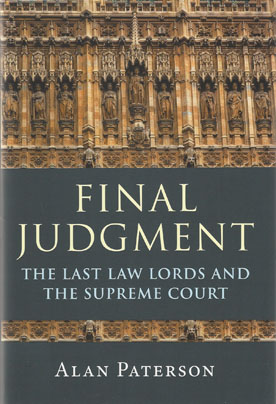
Winner of the Inner Temple Book Prize 2015.
The House of Lords, for over 300 years the UK's highest court, was transformed in 2009 into the UK Supreme Court. This book provides a compelling and unrivalled view into the workings of the Court during its final decade, and into the formative years of the Supreme Court.
Drawing on over 100 interviews, including a total of 36 Law Lords, this is a landmark study of appellate judging 'from the inside' by an author whose earlier work on the House of Lords has provided a scholarly benchmark for over 30 years.
With insights from social psychology and strategic theory and collegiality, the book demonstrates that appellate decision-making in the House of Lords, always a social and collective process turning on a number of dialogues between justices and counsel, remains dialogue-based, but is now more varied, being face to face, oral, written, symbolic, contemporary, asynchronic and virtual.
The range of dialogues is also more extensive than in the past, including with foreign courts (especially Strasbourg) and with Judicial Assistants, thus subtly altering the tenor of other dialogues. The interface with counsel remains central to the decision-making process but written arguments have doubled in size whilst oral ones have been halved in duration. This has had unexpected knock-on effects on the dialogue between the Law Lords themselves which has also moved from one that was predominantly oral forty years ago to one that was much more in writing by 2009.
In terms of collegial decision-making the research reveals that unlike the English Court of Appeal the House of Lords in the last decade was only intermittently collegial. On a number of fronts the preferences of the senior Law Lord ensured that opinion writing, concurrences and dissents were largely left to individual preference rather than collectively negotiated.
The work also examines the techniques for consensus building and influencing judicial colleagues used in the House which enabled certain Law Lords in a significant number of close decisions to bring about a change in the majority decision of the court.
The expansion in judicial review over the last thirty years has given rise to another final dialogue with Parliament leading to a constitutional struggle between the highest court and the other branches of government which masks an accountability problem recently exacerbated by our doctrine of separation of powers.
The book examines mechanisms for handling this democratic deficit, including reform to the selection procedure for Supreme Court Justices and greater transparency in decision-making. The concluding chapter explores the changed dialogues that have come with the advent of the Supreme Court and the attempts in the new Supreme Court to introduce a more collegial decision-making style.